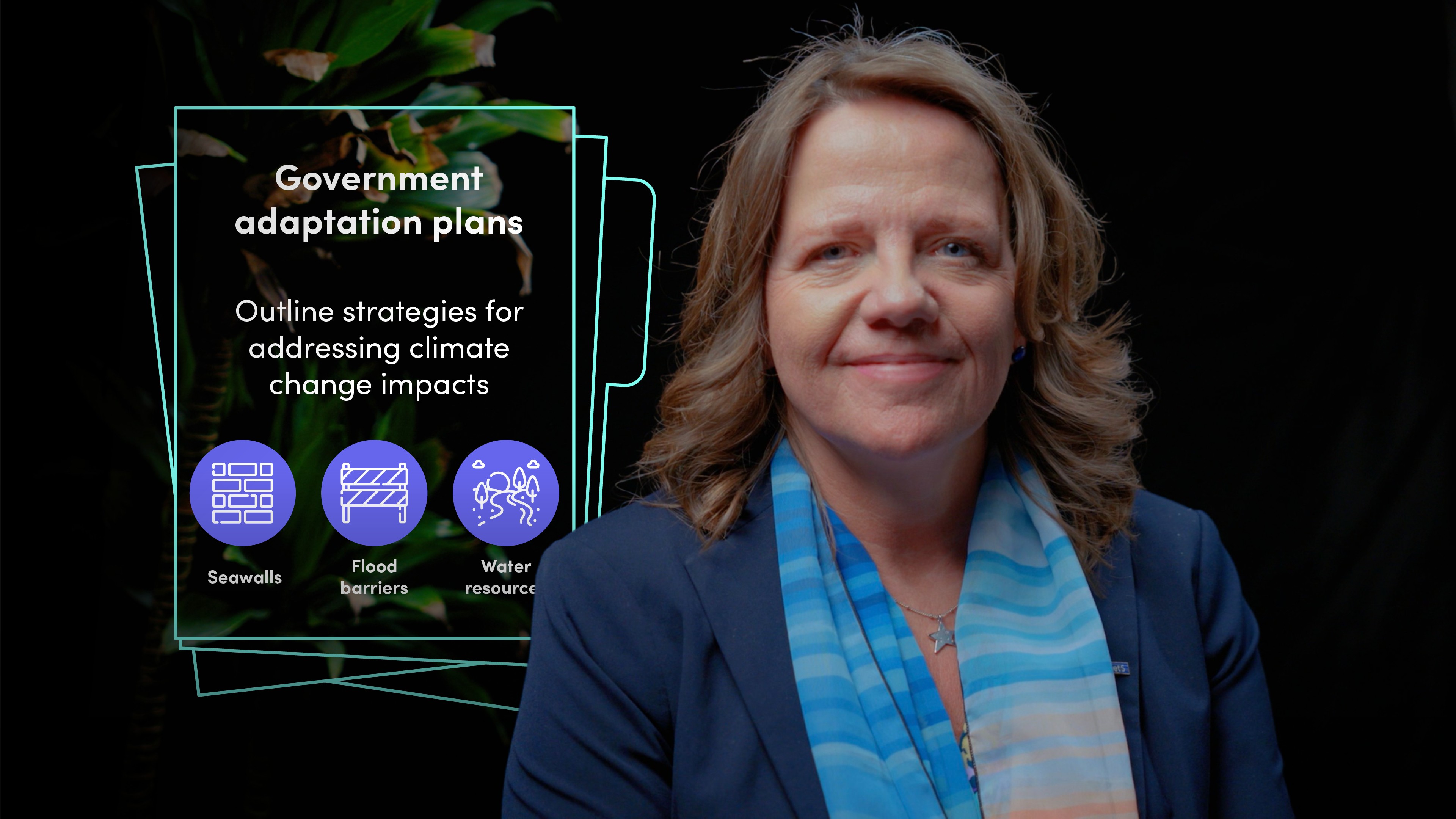
Climate Change Adaptation

Liz Bentley
25 years: Meteorologist
Some damage has already been done and we need to learn how we can adapt around the changes to the climate. Join Liz Bentley as she explores how governments, businesses and individuals can achieve this.
Some damage has already been done and we need to learn how we can adapt around the changes to the climate. Join Liz Bentley as she explores how governments, businesses and individuals can achieve this.
Subscribe to watch
Access this and all of the content on our platform by signing up for a 7-day free trial.

Climate Change Adaptation
5 mins 17 secs
Key learning objectives:
Define climate change adaptation
Outline government, corporate and individual adaptation strategies
Understand why mitigation is preferable to adaptation
Overview:
Adaptation means adapting our lives in anticipation of climate change impacts. Governments can conduct risk assessments and identify areas of vulnerability. Governments can outline specific strategies to address the impacts of climate change. Businesses can conduct climate risk assessments to identify and assess exposure to climate risk. It is harder for individuals to adapt but they can push for policy change and create personal and emergency resilience plans.
Subscribe to watch
Access this and all of the content on our platform by signing up for a 7-day free trial.
Subscribe to watch
Access this and all of the content on our platform by signing up for a 7-day free trial.

Liz Bentley
There are no available Videos from "Liz Bentley"



























